This installment of The Issue features my favorite science fiction character in American history: Frank Reade. The character debuted in the 1876 story paper (think newspaper format, but containing fiction instead of news) Boys of New York #28, and went onto feature stories in that title, Wide Awake Library, then getting his own series with Frank Reade Library (the first science fiction series in America), and finally the color-covered title Frank Reade Weekly. The character was featured in no fewer than three series published in the UK as well.
The Issue is a regular column about vintage comics and other vintage periodicals from throughout world history. The idea behind The Issue is simple: for each post, I'll choose something from my collection and talk about what's going on in it, and discuss the publishers and creators behind it. Essentially, I'm just going to end up stepping through American history one periodical issue at a time. There is just one rule in The Issue: No recent stuff. Everything will be from before 1940, and most of it will be from before 1920. In this issue: Frank Reade Weekly #94: The Demon of the Clouds; or Frank Reade Jr and the Ghosts of Phantom Island. Published August 12, 1904 by Frank Tousey, Publisher.
Most Frank Reade and many other stories were written by Luis Senarens. under the Frank Tousey, Publisher house pen name, "No-Name". Working in anonymity for decades, Senarens became one of the most prolific science fiction authors in American history. The cover artist here is still unknown.
Frank Reade, Buffalo Bill and Churchill's Mom
Whenever I see people say from here on out that Frank Reade stories were racist and crudely written, this is the one I'm going to mention as counterpoint. This is flat out one of the most fascinating dime novels I've read. The cover gives one an obvious impression: hooded Klan-like figures have captured and harmed Frank's assistant Pomp — and Frank and Barney are preparing to rain hell down on them from the Demon to get him back. Barney and Pomp are Frank's trusted assistants throughout the Frank Reade saga — capable of operating complex scientific equipment and advanced weapons.
The story has that, and much more — and it's nothing less than a history lesson of the development of the Jersey shore. Ned Buntline also appears in the story, by name. Winston Churchill's mother Jennie Jerome is alluded to by name, although the story is more a reference to her father Leonard Jerome. In real life, Leonard Jerome — a wealthy and powerful man whose influence nearly rivaled the Vanderbilts for a time — was an associate of both Buntline and Buffalo Bill himself.
This is a tale of a group of "Ghosts" who defended their island at all costs and used various tactics to keep both natives and business rivals away. Enter Frank Reade, who comes to the rescue of an associate of the Ghosts — Ned Buntline — who has ultimately found himself on the outs with them. It's all a cleverly-coded reference to political and financial machinations surrounding the transformation of Wildwoods island from a virtually undeveloped and indeed wild place of nature to a resort for the wealthy and powerful of the era.
By the time this story had been published, there was a well-known yacht club based on Wildwood, and the exploits of these "Commodores" and their expensive yachts often made the local papers. The leader of the Ghosts is named "Commodore Wild", which gave me my first clue into the real history this story references. In the end, Commodore Wild tells Frank that his aim in part was to scare off both business rivals and native fishermen so that his group could keep the island for himself for financial gain, which is essentially what happened with Wildwood Island.
Wildwood and other environs of NJ were originally occupied by the Lenni-Lenape native tribes. It is key to this story that long after they had been displaced, the Lenni-Lenape retained by law hunting and fishing rights in this area into the mid/late-1880s if not beyond. A scan of newspapers of the period shows the Lenni-Lenape to be people of not insignificant political acumen, and they made a point of using such hunting/fishing rights regularly where they had been granted, in order to maintain them by law.
Enter a trio of mercantile businessmen named the Baker Brothers, who purchased Wildwood at about this time, with an eye towards developing it into a resort and playground for the wealthy. The three Baker Brothers embarked upon a slow, steady, and comprehensive plan to transform this purchase into a bonanza of real estate wealth. They ultimately succeeded. They covered all the bases: they entered state-level politics, they built infrastructure, they were charitable. Most of all, they were very patient.
The First (and Last) of the Know Nothings
As far as I can tell, there is no direct connection between the Bakers and either Ned Buntline or Leonard Jerome. I take their involvement in the story as sort of a short-hand summary of the political and financial machinations of the area that led up to this point. For example, even though this is very late in his life, Buntline was still a political raconteur whom we would certainly think of as being on the wrong side of history for the Know-Nothing views that he still seemed to have held onto at this late date. He was still very much anti-immigrant during this era, and one key political battle that the wealthy and powerful of New Jersey took on as Buntline headed into his final year was to remove immigration intake from Bedloe Island (where the Statue of Liberty had been erected) and to place it on Ellis Island. The unspoken but very clear subtext of the discussions in the newspapers of the time was… ironically enough, of course… that this would enhance Bedloe's value as an area tourist attraction.
The Leonard Jerome connection in the story is clever and interesting. The Ghosts' main ship is named the Jennie Jerome, which makes the Ghosts a legacy of Leonard Jerome's wealth and power. Like the Baker Brothers, Jerome was clever, methodical, and patient and had built his wealth and power over time. He was also crafty and quietly ruthless, and I ultimately believe that's why the Bakers have been positioned as his legacy in this story. They are wannabes who aspire towards the same things in the same ways.
[Incidentally, there is an often-repeated tale of Leonard Jerome manning a Gatling Gun that had been mounted on the roof of the NY Times building (where he was a part owner) to defend it during the Draft Riots. I think this must be apocryphal, as there are no accounts of this rather astonishing matter on the record until the mid-20th century. In any case, it's perhaps an example of why his grandson Winston Churchill somewhat charitably characterized him as "very fierce".]
In the end, when Frank has bested the Ghosts and confronts them, their hooded costumes come off and they admit to their plan. They intended to scare off nearby rivals and natives with their outfits, and their motive was pure economic profit. They told Frank there was some valuable but unspecified treasure on the island that was the source of enormous wealth. Frank expresses disappointment and amazement at such a motive. He'd rather be using his resources for adventure and inventing, unlike simple economic profit as they are. I think this last is a clue as to the inspiration of the Ghost concept — and as we'll soon see, that inspiration is a real-life inventor who is little-remembered today.
The Daredevil Diver and the Surfmen
At the time the Baker Brothers bought in, one of the only structures on Wildwood was a US Life-Saving Service Station outpost — essentially an early version of the Coast Guard. There exists a personal account of a member of this service and his recollections of his memories of this specific area's history. For example, he notes the area was TRULY wild at this time, including "vicious animals" that would attack them on patrol. These included wild "calves, sheep, and hogs", and when the Bakers took over they had to hire "gunners" to kill these dangerous animals.
Sheep and Calves so dangerous they need to be gunned down rather than simply captured…? As someone who grew up in the rural heartland, I'm not seeing it. Hogs… it's possible. But the account of needing to hire a gang of gunmen to kill them off seems like an overreaction that could be indicative of other tactics. This same writer, a "Surfman" of the Life-Saving Service himself, recounts one anecdote in which he doesn't want to specifically name one particular of his colleagues, and simply calls him "Mr X".
It's a good bet that this "Mr X" is none other than infamous daredevil diver Paul Boyton. Boyton is known to have operated in this specific area at this time. One good description of him is as sort of an aquatic Buffalo Bill, with far less morals. By his own account, he'd work for any person for any reason, and his autobio of the era gives one the sense of someone who was far more racist than the average person of his time. On-the-record incidents in this exact area include him starting a fire which saw him accused and questioned for arson (but not arrested) and shooting a pistol at a woman for unknown reasons.
More interestingly, there's also a vague account of Boyton approaching the crew of a Life-Saving Service Station of this area, and offering them suits and training for reasons unknown. It seems to have fallen apart from internal squabbling eventually, though at least one of the men did gain enough skill to also become a diver of some local note. One of Boyton's suit models of this era was white, with a pointy hood. I can very easily imagine Boyton and his crew rising up out of the water to scare local fishermen, or… anybody, really.
As for the Baker Brothers, seven years after Frank Reade Weekly #94 was published — and about 25 years after they embarked on their plans for Wildwood — they finally executed the flip, and cashed out. They'd held onto the majority of the real estate themselves all that time, and sold it all off in one highly-publicized auction in late 1911. Attracting an astonishing 1,000+ live bidders on the primary auction day, by all accounts the sale was a stunning success.
In the end, once he'd stopped their shenanigans, Frank Reade reluctantly walked away from the situation. Just like the Baker Brothers themselves did, the Ghosts had the local law on their side, it seems. The bad guys won this one, and if this all tracks as closely to real life as I think, the Baker Brothers won, too. History remembers them as men of solid reputation who were simply driven businessmen.
You can read Frank Reade Weekly #94 on the Internet Archive. Overall, it's some well-crafted and clever writing which embeds a forgotten arc from history into an entertaining story. Wildwood, New Jersey is a popular vacation spot to this day.

The post THE ISSUE: Frank Reade and The Ghost of Churchill's Mom appeared first on Bleeding Cool News And Rumors.
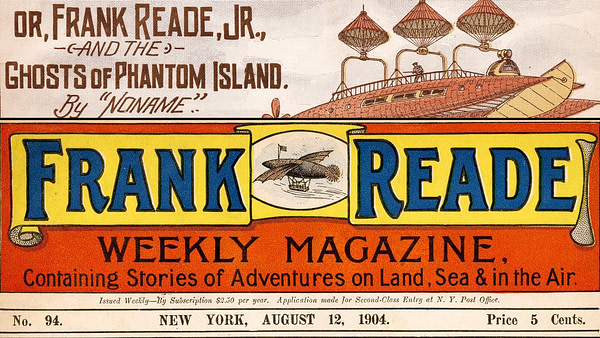
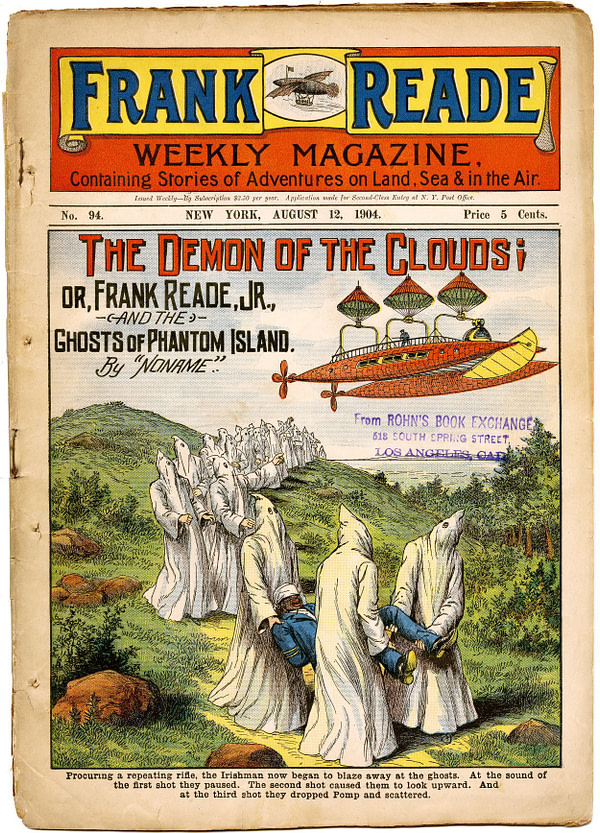
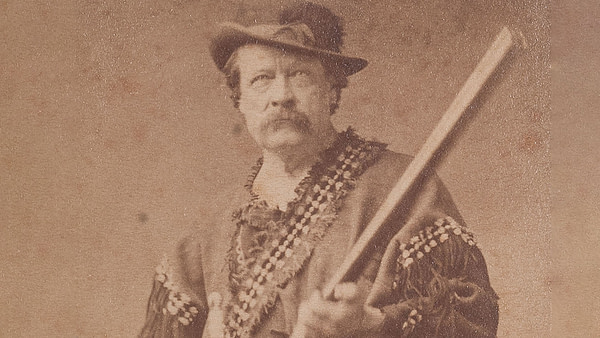
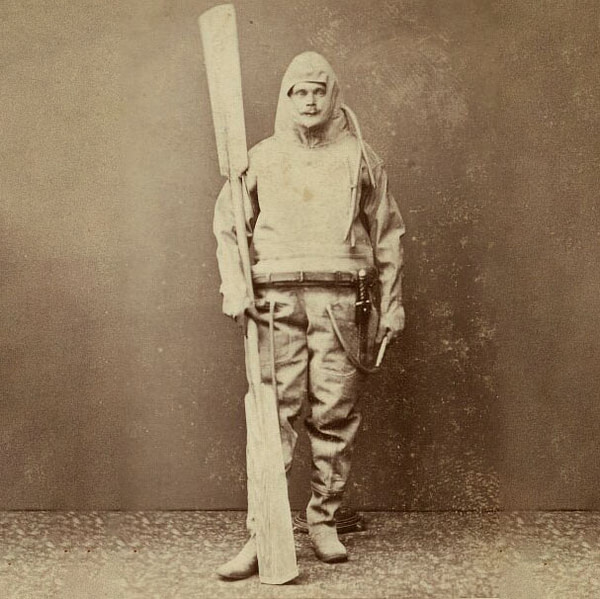
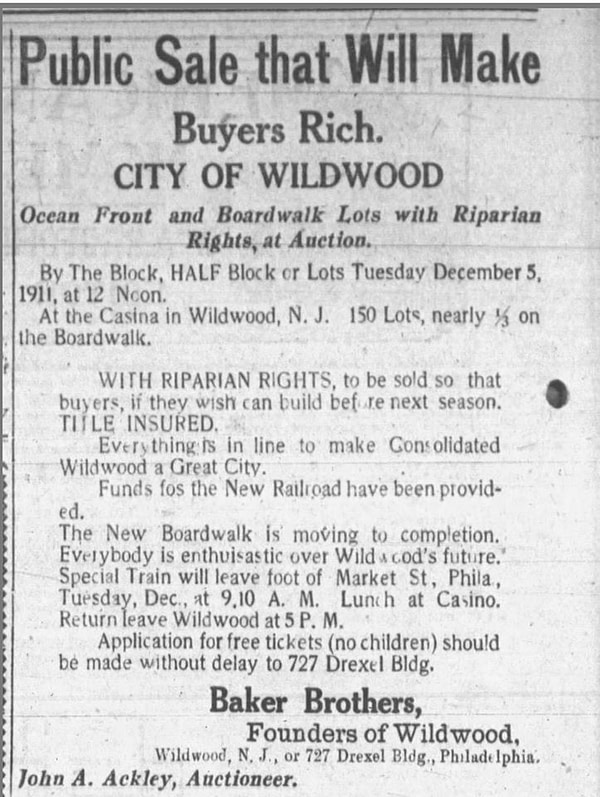


No comments:
Post a Comment